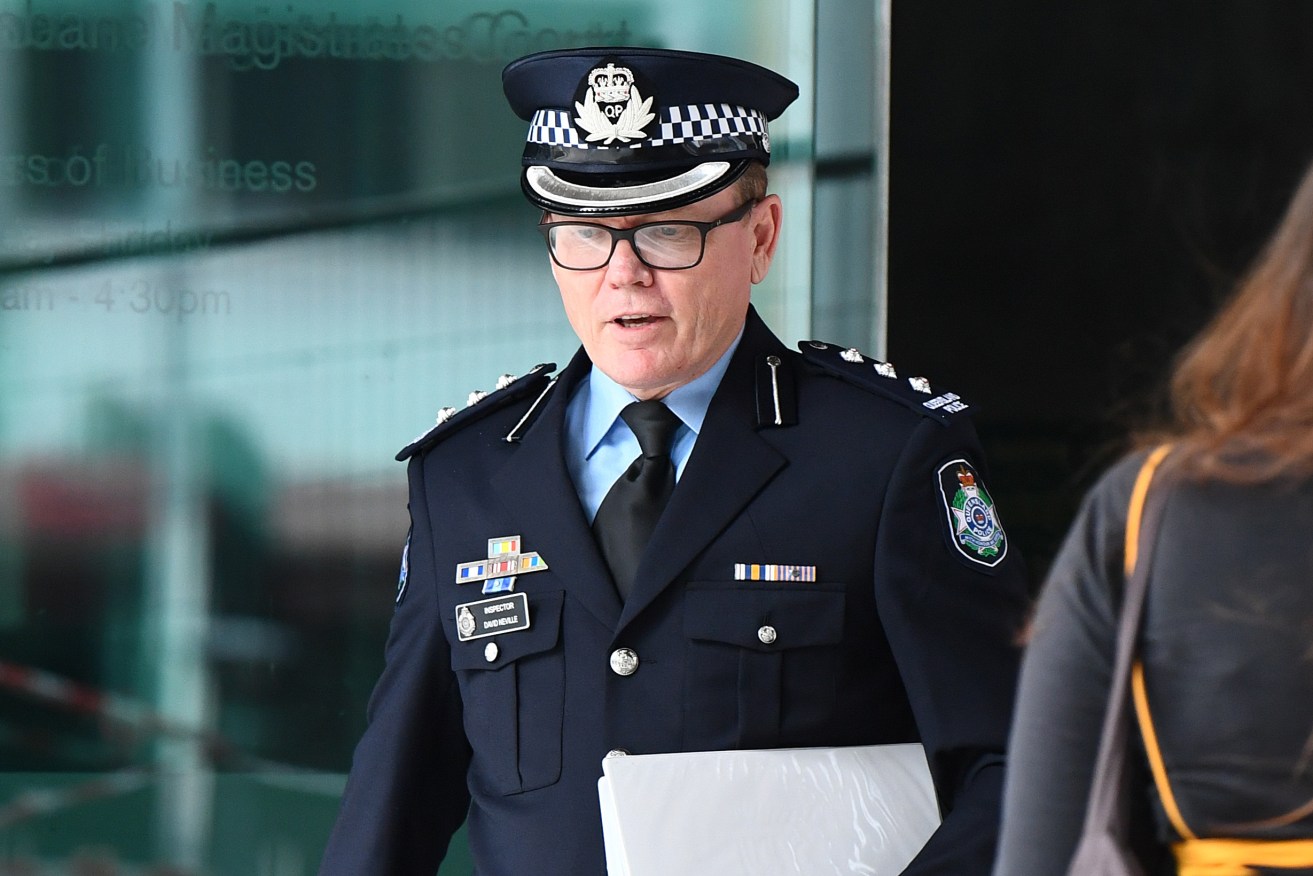Forensic farce: Rapist’s DNA matched only after police demanded sample be retested
Fears crucial evidence was being missed by the government-run forensic lab prompted Queensland police to call for a thorough review of DNA thresholds.

Inspector David Neville leaves the Commission of Inquiry into Forensic DNA Testing in Queensland. (AAP Image/Jono Searle)
A public hearing of the Commission of Inquiry into Forensic DNA Testing on Wednesday heard the relationship deteriorated between police and the facility as serious questions arose over testing results.
Inspector David Neville, manager of the Queensland Police Service DNA unit, said police lost faith in the results being delivered and began to routinely ask for further testing on major crimes.
The laboratory’s extraordinary failures were highlighted by samples collected from a rape where a woman was brutally attacked in November 2021.
Investigators collected nine separate semen samples from the victim, the suspect and the scene of the attack, but the forensic laboratory failed to identify any DNA profile from any of the samples.
Police demanded the samples be retested, with those secondary results returning a profile with a ratio exceeding 100 billion to match the suspect.
“So there were six samples in total taken from the victim originally reported as DNA insufficient and then later tested and reported matching the offender,” Neville said.
He said police repeatedly asked the forensic lab for an explanation, only to be rebuffed during months of emails.
In one exchange, police outlined the alarming ramifications the testing failure may have on the community and the justice system.
“Failure to take timely action could place people in the community at risk by allowing a perpetrator to go unidentified,” Neville said in emails detailed to the commission.
“I don’t think it is appropriate to do that, to delay any review or provision of information that might assist in understanding the nature and extent of this issue.”
Such was the concern, senior police wrote to Queensland Health advising they would no longer accept the testing thresholds the lab applied to major crimes, Neville said.
Police compiled a spreadsheet detailing the results of samples from January 2021 that showed Queensland Police requested further testing on 393 samples, with 33 per cent of results returning a usable profile.
That rate of success from retesting is “disturbingly high and raises the risk that we might be missing evidence that could identify an offender”, Neville wrote.
“QPS needs to take steps to mitigate this based on the results being achieved. The QPS is no longer comfortable with the automatic discontinuation of testing of samples.”
Neville asked for an urgent meeting to find a workable solution, but lab management failed to respond.
The inquiry was told the laboratory has refused to test more than 21,000 evidence samples since 2018 with the QPS submitting between 25,000 and 27,000 samples a year.
“So in four years, of the let’s say 100,000 samples went through the lab, 20,000 were reported as DNA insufficient for processing – so about a fifth of their workload,” he said
Claims the threshold testing changes were a way to increase testing speed and lower costs were also rejected by Neville, who was asked if there had been a turnaround time for results had improved.
“No, in fact immediately following … the workflow turnaround increased, so they went from 40 days to 55 days.”
The probe into Queensland’s DNA lab comes after the release of an interim report identifying serious shortfalls in testing thresholds.
Managing scientist Cathie Allen and team leader Justin Howes, who pushed for the change, were stood down after the findings were released.
The hearing continues before Commissioner Walter Sofronoff in Brisbane on Wednesday ahead of the commission’s final report due in December.












